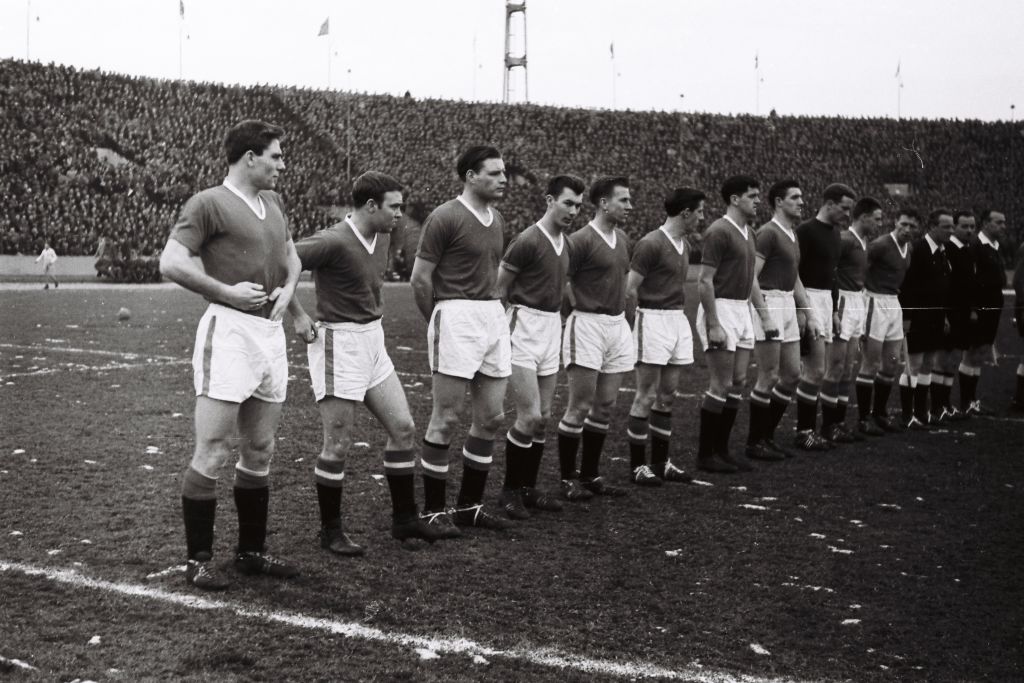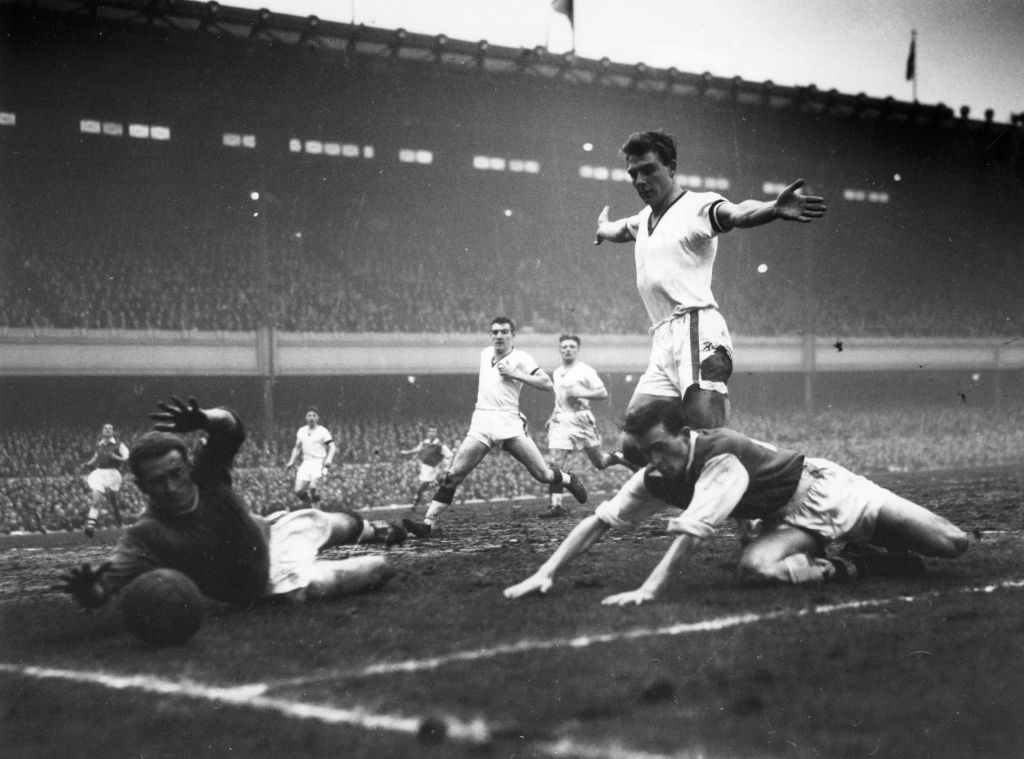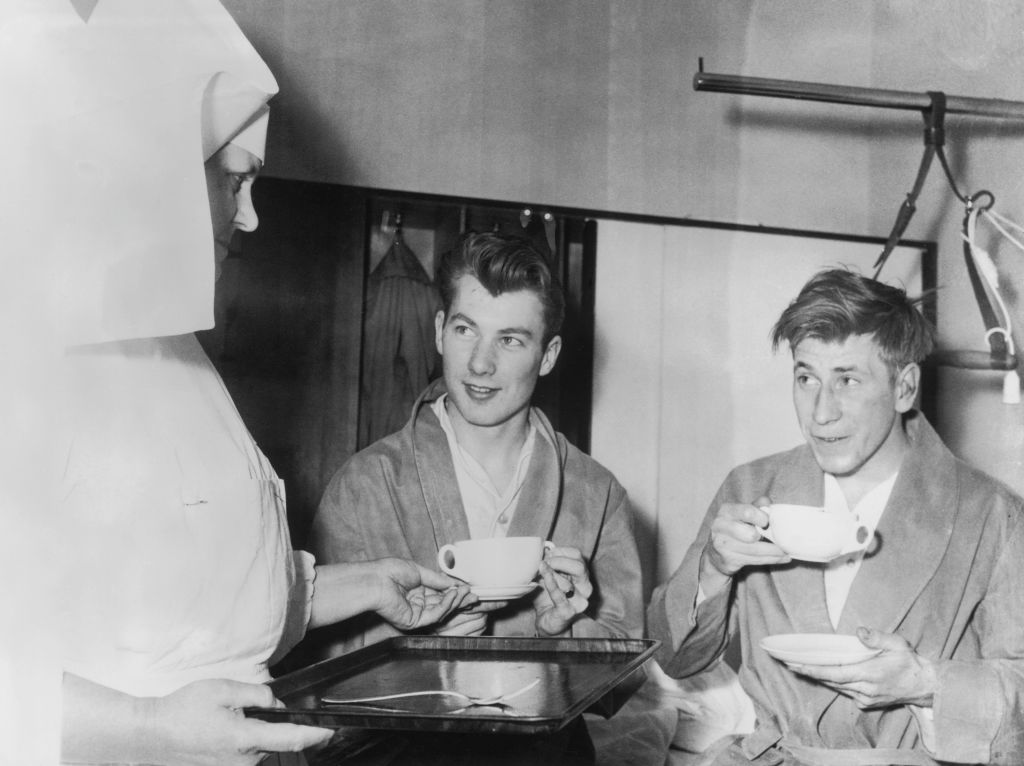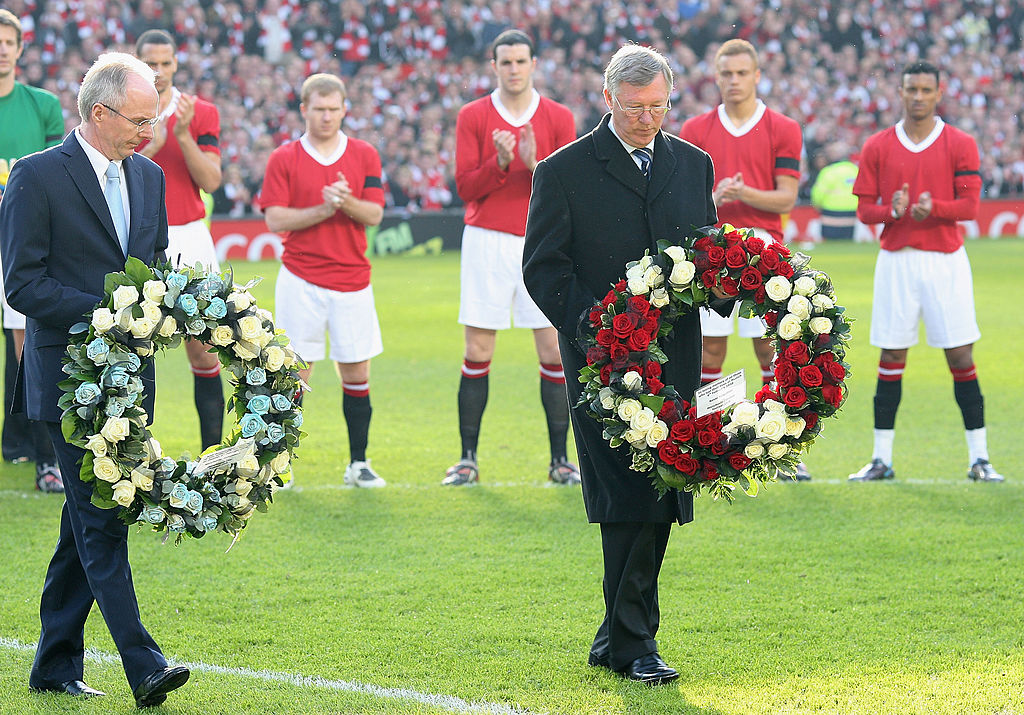
David Peace, author of The Damned United and Red or Dead, has released a new novel, Munichs. The superb book is based on the 1958 Munich air disaster that killed 23 people, including seven members of Manchester United’s legendary Busby Babes, and follows manager Matt Busby, caretaker boss Jimmy Murphy, the players and their families through the tragedy and its immediate aftermath.

Munichs takes place in the days and weeks immediately following the disaster. Was that something you particularly wanted to focus on?
David Peace: The book was really written to continue the conversation with my dad. About 50 per cent of our talks were about football, and obviously a lot of them were about Huddersfield Town. But the team that I suppose made the biggest impression on him were the Babes.
There’s always a Huddersfield connection with my football books, and here it’s that Busby brought United to Leeds Road in October 1953, and United fans often consider that to be one of the first time the Babes played - the idea of them as the Babes. There was a headline in one of the Manchester papers that said ‘Busby’s bouncing babes keep Town up all night’.
It was a 0-0 draw, but it was the second league game Duncan Edwards played. My dad was 16 and really fancied himself as that Dennis Compton ‘playing football in the winter, cricket in the summer’ kind of thing - his dream was he was going to play for Town and play for Yorkshire. But when he saw Duncan, who was only 17, he decided he’d be best to just focus on cricket – haha!
But obviously, my dad really thought that team were quite special. He had trials for Yorkshire at county cricket level, but he ended up going to teacher training college in London, and he was actually at the last league game the Babes played before the disaster, against Arsenal, where United won 5-4
That was just a huge thing for my dad, and he had the program. My son is a Man United supporter – I mean, Town are his second team – but my dad gave that program to him.
My dad died in May 2022, and actually his funeral was on the day of Town’s first home leg against Luton Town in the playoffs that year. Between him dying and the funeral, there was the last home game against Bristol City before the play-offs, and me and my brother-in-law and a mate went. It was a tribute to my dad, and it was a lovely day – we beat Bristol City, we were already in the play-offs, there was no pressure, it was just lovely.
When I got back to Tokyo [where Peace lives], it was a way to keep a conversation going – to write about United. So there was that personal reason, but he'd told me about the Babes, and anybody who's interested in football knows the story.
I think the two things that really struck me were I hadn't realised the extent to which it was a national tragedy – that it didn't matter who you supported or whether you were even interested in football, it was a huge deal.
But also, I hadn’t really comprehended what Jimmy Murphy did as caretaker manager, trying to then take those young lads like Harry Gregg and Bill Foulkes, and Bobby Charlton when he came back, and taking them all the way to Wembley. I hadn't really clocked that.
I think it's just a really gripping sports story about how United rose again – and alright, they lost the final – and triumphed out of the tragedy.
I’d gone into it thinking of making it about going into 1968, when United won the European Cup, or even to 1974, because that’s fascinating, how they went downhill to relegation. But there was so much I didn’t know about and I was fascinated by the exact details of the crash and what happened afterwards.

You've said before that you're fascinated by routines and rhythms of life, but this is all about a moment where that gets shattered entirely. It feels a bit uncanny that you’ve got this huge tragedy, and yet you've got the rest of the world acting like football is the most serious thing in the world…
DP: I know! I don't want to come across too much like psychoanalysis or pretentiousness, but I think there were two things.
Everybody loses parents and stuff, so I'm not making a big deal about it, but we'd had quite a time with my dad and his vascular dementia. It's hard, and it was hard on my mum and particularly my sister.
Secondly, I was coming back over during the pandemic, and it was all this quarantining, you couldn't see anybody, having to test and all this kinda stuff… and the whole country and the world is gripped by the pandemic, and there's tremendous loss of life.
I think I saw parallels in dealing with personal grief and the pandemic, and then actually, how do we keep going in the face of disaster?
To me, it’s always trying to kind of find those rhythms and routines again. It's like the cliche, ‘life goes on’, et cetera – but it doesn't go on automatically. You have to kind of work to make it go on.
I think that’s what comes out in Jimmy Murphy… in a way, ultimately the football saves them, it's the football that keeps them going.
I think that's true for a lot of people. I mean, when I've had hard times in my life, it’s a release from the stress of it all - even though Town are not the least stressful side to follow! But it’s a release from other things, isn't it?

I was really surprised at some of the abuse portrayed in the book – for instance, people in the stands shouting ‘it should have been you that died at Munich’ at certain players and things like that. We think of that as being a bit of a more modern disease, but was that happening back then?
DP: Lots of stuff surprised me. Some people have said, ‘oh, it's all nostalgia’ and this kind of thing. But I think if you read the book closely, it's not.
The fact that up at Sunderland, and at Burnley, at other clubs, they were receiving abuse, and also people were throwing stuff at them and things. I think people forget before Munich, there was a resentment towards United – they were known as Hollywood United.
The Babes were a bit of a phenomenon before Munich, but there was a view that Bobby Charlton should have gone to Newcastle, by rights; Duncan Edwards should have been playing for Wolves… but they want to go to United, it's the lure of United before Munich. I think that kind of resentment manifests itself in that kind of abuse.
One of the things I couldn't get over was… Dennis Viollet, who is injured in the crash, comes back from Munich, trains, and he fights his way back into the team, but even United fans are sending poison pen letters saying ‘you shouldn't be in the team, it's the young lads who've got us to the final’.
It's the sort of thing you imagine now – people sending terrible tweets to Marcus Rashford or something. But they were sending poison pen letters to Dennis Viollet. It’s both horrifying and almost reassuring in a weird way. It makes you think maybe things haven’t got worse as much as we think it has.
The way people often blame football… football is just a mirror to the society, you know. Football doesn't make these things happen. It's the same with social media – it maybe amplifies it. It's like that noisy b****** in the pub. It’s just a bit harder to get away from, that's all.

You live in Japan - do you watch much of the J-League, or is it all English football?
DP: Mainly, it's English football. My son lives in Kyoto, and so I've actually gone down there a couple of times and we will go to a game – I think it's just that tradition of going to a game. But I mean, I don't follow it. I couldn't tell you what the top of the table looks like now at the moment and stuff. It's really my son, you know.
I was on the train back from London, and he was moaning about Leeds signing Ao Tanaka – you sell so many shirts in Japan, so he was moaning about that, saying ‘oh, don't tell me there's gonna be like a thousand Leeds shirts now on the streets!’.
Are there other football stories you have in mind for future books, potentially?
DP: Yeah, I've got some ideas. But I've made a resolution because I was going to write a book about Geoff Boycott, and I talked about it, and then Geoff Boycott kind of got wise to it. And then Geoff Boycott did a book on his own with another writer, which was to kind of preempt it. So now I've stopped saying it!
But my grandad was born in 1907, and he saw the Town team of the 1920s, and I’m kind of fascinated by the figure of [former Prime Minister] Harold Wilson. When he was suffering from dementia, the way he tried to keep his mind going was listing all the great Town sides and the games from the 1920s.
So I would really like to do something about Huddersfield in the 1920s and Harold Wilson. But I think the thing that worries me is… I can talk about Leeds and Liverpool and United quite objectively, but I can't with Town!
My editor was once working on one of my books and he was going, ‘You've managed to mention in every book that Town won the title three times in a row’ – haha! But I don't think people appreciate what that is, what that actually is.
Writing about Munich and United in 1958 is quite hard in terms of [research and putting yourself there], but actually then to go back to the 1920s, I think it's just a challenge. But, you know, you shouldn't shirk a challenge.
There’s a lot of interesting stuff there, isn’t there – that came just after the fans had to save the club from moving to Leeds after Leeds City collapsed…
DP: Yeah, and all the stuff about Chapman coming off the back of a scandal with Leeds City. So you know, it’s a chance to talk about Dirty Leeds again!
MUNICHS by David Peace is on sale now at all good book retailers
More stories
The death of the Saturday 3pm kick-off or brave new world? EFL enters Sky Sports+ era with massive implications for fans
When Manchester City were rubbish: How the 1998/99 season changed a football club’s destiny
Before Three Lions: How Baddiel and Skinner’s Fantasy Football defined football in the 1990s







